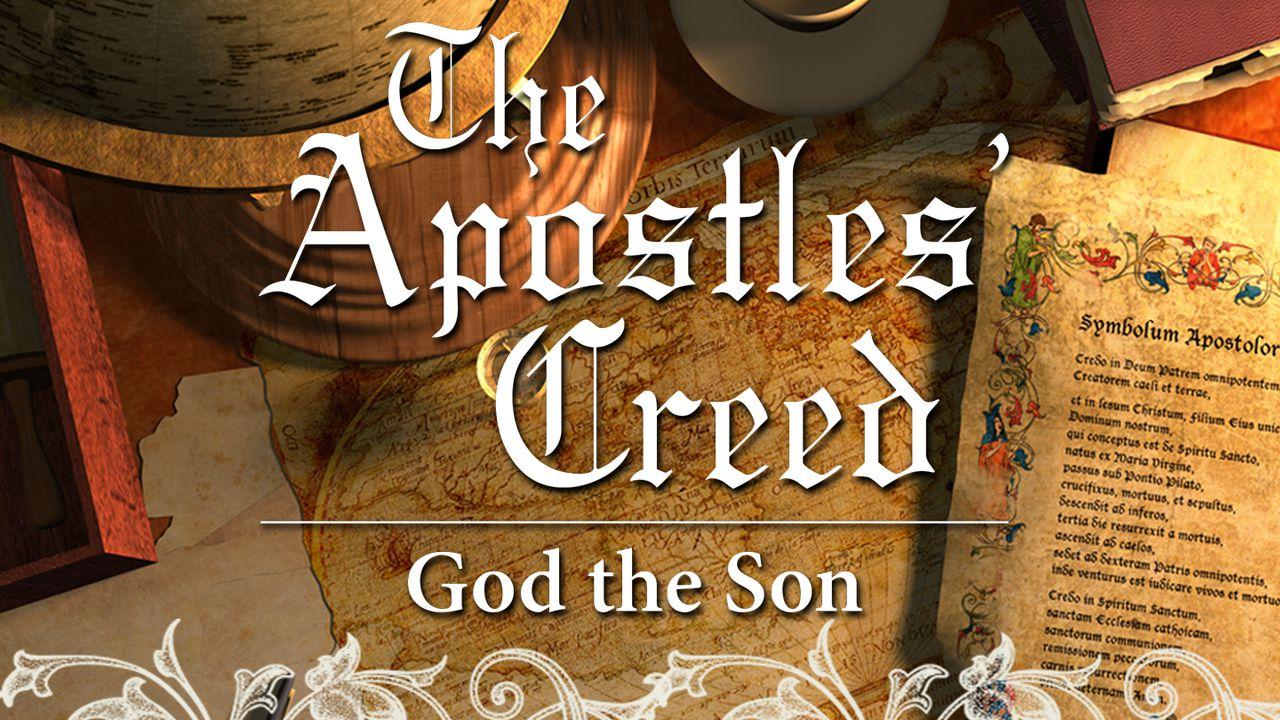The Apostles’ Creed: God The SonSample

Jesus’ Passion: 1 Peter 2:20-21
The theological term “passion” comes from the Greek verb pascho, meaning “suffer.” It refers to Jesus’ suffering and death, beginning the night of his arrest. Jesus’ passion is mentioned in these lines of the Apostles’ Creed.
He suffered under Pontius Pilate,
Was crucified, died, and was buried;
He descended into hell.
Most Christians are familiar with the story of Jesus arrest, suffering and crucifixion. So rather than explore those details here, we’ll focus on the reason that Jesus subjected himself to these events.
With regard to Jesus’ suffering, Scripture explains that it was necessary to teach Jesus obedience, and to commend him to God the Father. As we read in Hebrews 5:8:
[Jesus] learned obedience from what he suffered (Hebrews 5:8).
And as Peter wrote in 1 Peter 2:20-21:
If you suffer for doing good and you endure it, this is commendable before God. To this you were called, because Christ suffered for you, leaving you an example, that you should follow in his steps (1 Peter 2:20-21).
Through his suffering, Christ fulfilled the Father’s will, and thereby commended himself to the Father. By perfectly obeying the Father, he earned an eternal reward — a reward that he now graciously shares with us.
But Christ’s treatment under Pilate did not end with suffering; it carried through to his death by crucifixion. This is perhaps the best known aspect of Christ’s work of humiliation, and for good reason: it was his death that atoned for our sin and accomplished our salvation.
The death of the Lord Jesus for sin (that’s how it’s presented all the way through the New Testament) worked, if one can put it this way, because he became our penal substitute. “Substitute” means he took our place, and “penal” points to the fact that he took our place in enduring the judgment, the penalty, which all of us had merited by our own transgressions of God’s law — the penalty, that is, with which God had threatened us for breaking his law. God’s nature is such, I mean this is his holiness in reality, his nature is such that where there has been sin, there has to be retribution. And the wonderful, wise, loving way of salvation that God planned was to divert the penalty from our guilty shoulders, if I can put it that way, onto the innocent, flawless shoulders of his incarnate Son, who thus fulfills the pattern of the flawless animal sacrifice that was demanded all through the Old Testament. – Dr. J. I. Packer
The apostle Paul often described the crucifixion as the very heart of the gospel. We see this in places like Romans 6:6, 1 Corinthians 1:17-18, Galatians 6:14, and Colossians 1:20. As just one example, consider his words in Galatians 2:20-21:
I have been crucified with Christ and I no longer live, but Christ lives in me. The life I live in the body, I live by faith in the Son of God, who loved me and gave himself for me. I do not set aside the grace of God, for if righteousness could be gained through the law, Christ died for nothing! (Galatians 2:20-21).
Christ’s death was the central work that accomplished our salvation. And for this reason, it has been the central fact of gospel presentations throughout history.
Scripture
About this Plan

This reading plan speaks of the divinity of Jesus Christ, looking at things like the nature of his divinity, and his relationship to the other members of the Trinity. It looks at his humanity, and discusses the relationship between his divine and human natures. And it talks about his work both during and after his earthly ministry.
More
Related plans

A Forever Promise (Bible App for Kids)

The Last Half Hour: When Waiting Becomes Glory

The Gospel According to Mark: Jesus the Suffering Servant

Renewed: A Fresh Start in Christ

A Brighter Future: A 5-Day Devotional

Cornerstone: Rebuild, Renew, Restore

Connect With God Through Expression | 7-Day Devotional

5 Steps to Standing Strong in Spiritual Warfare (For Women)

Not Giving Into Fear and Peer Pressure: Devotions for Girls (I Am Fearless)
